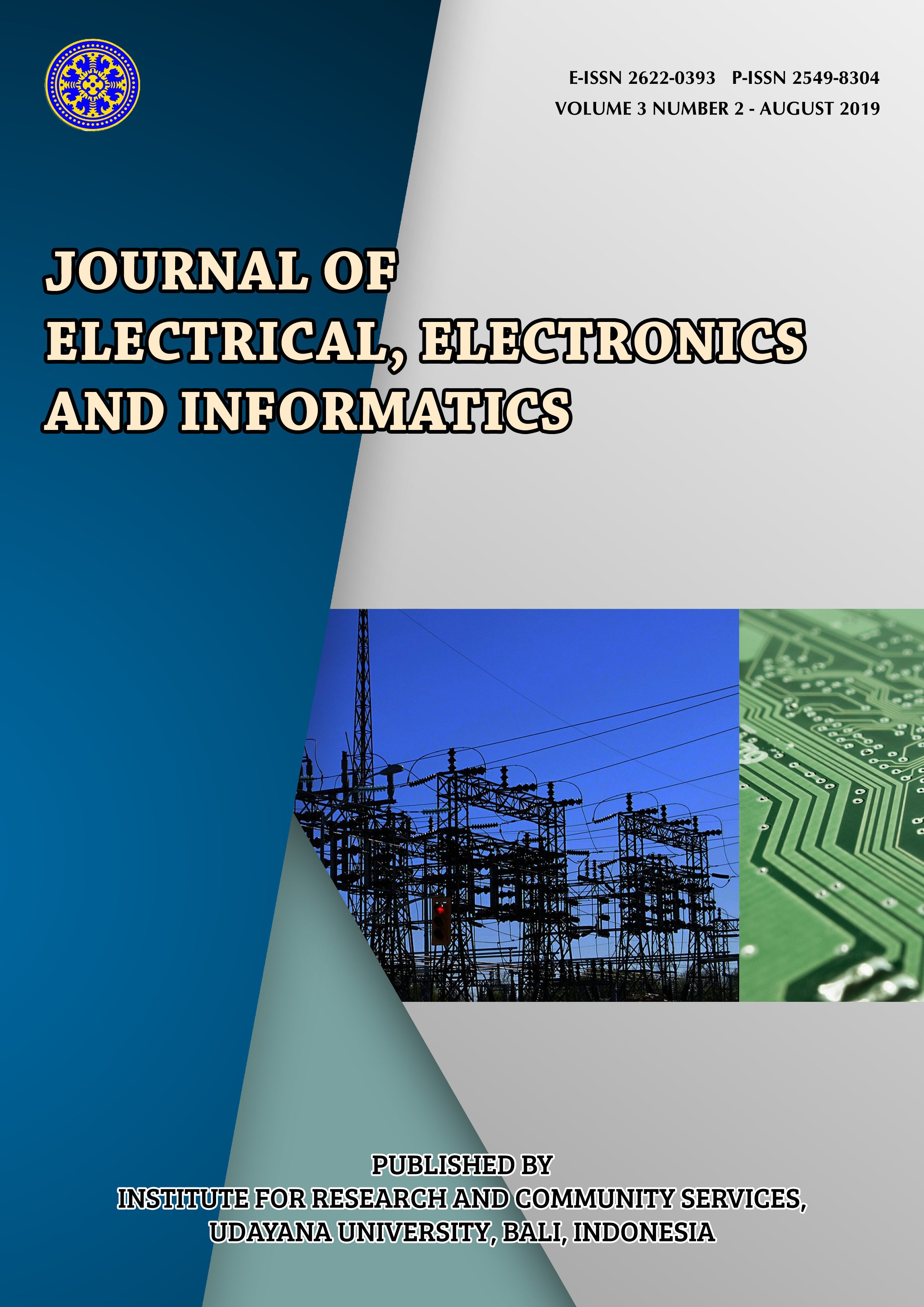Design of Liquid Waste Aerator Control Based on Fuzzy Logic
Abstract
Abstrak - Liquid waste is the result of liquid production which is no longer used, so it must be processed and managed so as not to cause pollution and decrease in environmental quality. The biological wastewater treatment system can use the services of decomposing bacteria. This performance is greatly influenced by several factors, including the amount of waste water, the level of impurities, the availability of oxygen (O2), the type of dirt and so on. Parameters used as standard control of BOD and COD liquid waste standards meet the standards. An aerator in the form of an air pump is used to disperse high-pressure air in liquid waste containing oxygen in the process of aeration effluence, so that when air rises to the surface of the water oxygen binding will occur. The operation of the aerator is generally done manually, so that there is a waste of use of electrical energy. This paper discusses the design of an aerator operating control system on waste quality standards using one input fuzzy logic controller and one output. The main component of the hardware is the Uno type Arduino microcontroller used, with the sensor input in the form of COD and output in the form of long working hours of the aerator. The results obtained indicate that the control device is able to reduce the use of electrical energy by 31.03% and can work well based on the value of small deviations and controls capable of working at a set point of 6-10 hours.
Downloads
References
[2] Amand, L. & Carlsson, B. 2013. Optimal aeration control in a nitrifying activated sludge process. Water Research 46 (7), 2101–2110.
[3] Wagini,R. Karyono. Budi, A.S. 2002. Pengolahan Limbah Cair Industri Susu. Manusia dan Lingkungan vol 9 hal 23-31
[4] KAYA, A. 2006. Fuzzy design of wastewater treatment plants. Graduate Scool of Natural and Aplied Science
[5] Doaa M. Atia1, Faten H. Fahmy1, Ninet M. Ahmed1, dan Hassen T. Dorrah2. 2012. Design and Control Strategy of Diffused Air Aeration System. The Online Journal on Power and Energy Engineering OJPEE
[6] Harrington, L. Kaemmerling,C. and Leininger, J.2014. On/Off Aeration Control of an Activated Sludge Digestion System. ENV-4970 Environmental Field.
[7] Amand, L. Olsson, G. dan Carlsson,B. 2013. Aeration control – a review. Water Science & Technology | 67.11 |
[8] Tirtowiyadi,B.H. 2014. Aplikasi Kontrol Proportional Plus Integral Pada Pengaturan Kadar Oksigen (Dissolved Oxygen) Akuarium. Tugas Akhir Jurusan Teknik Elektro Fakultas Teknik Universitas Diponegoro.
[9] Nurroisah, E. Indarjo,S. Wahyuningsih,A.S. 2014. Keefektifan Aerasi Sistem Tray dan Filtrasi sebagai Penurunan Chemical Oxygen Demand an Padatan Tersuspensi pada limbah cair. Unnes Journal of Public Health.
[10] Timoty J. Ross. 1995. Fuzzy Logic With Engineering Applications. McGraw-Hill, Inc

This work is licensed under a Creative Commons Attribution-ShareAlike 4.0 International License.











